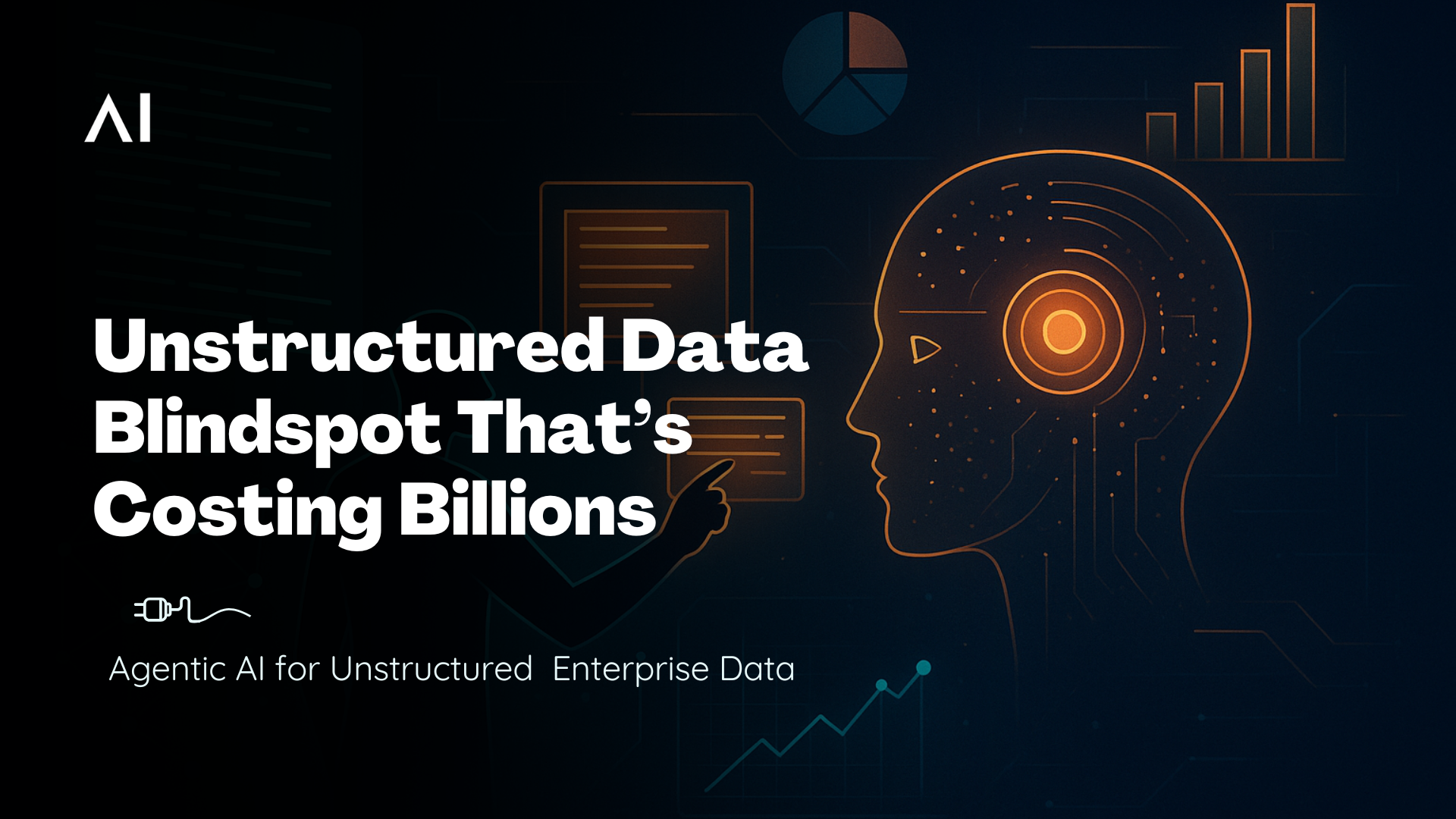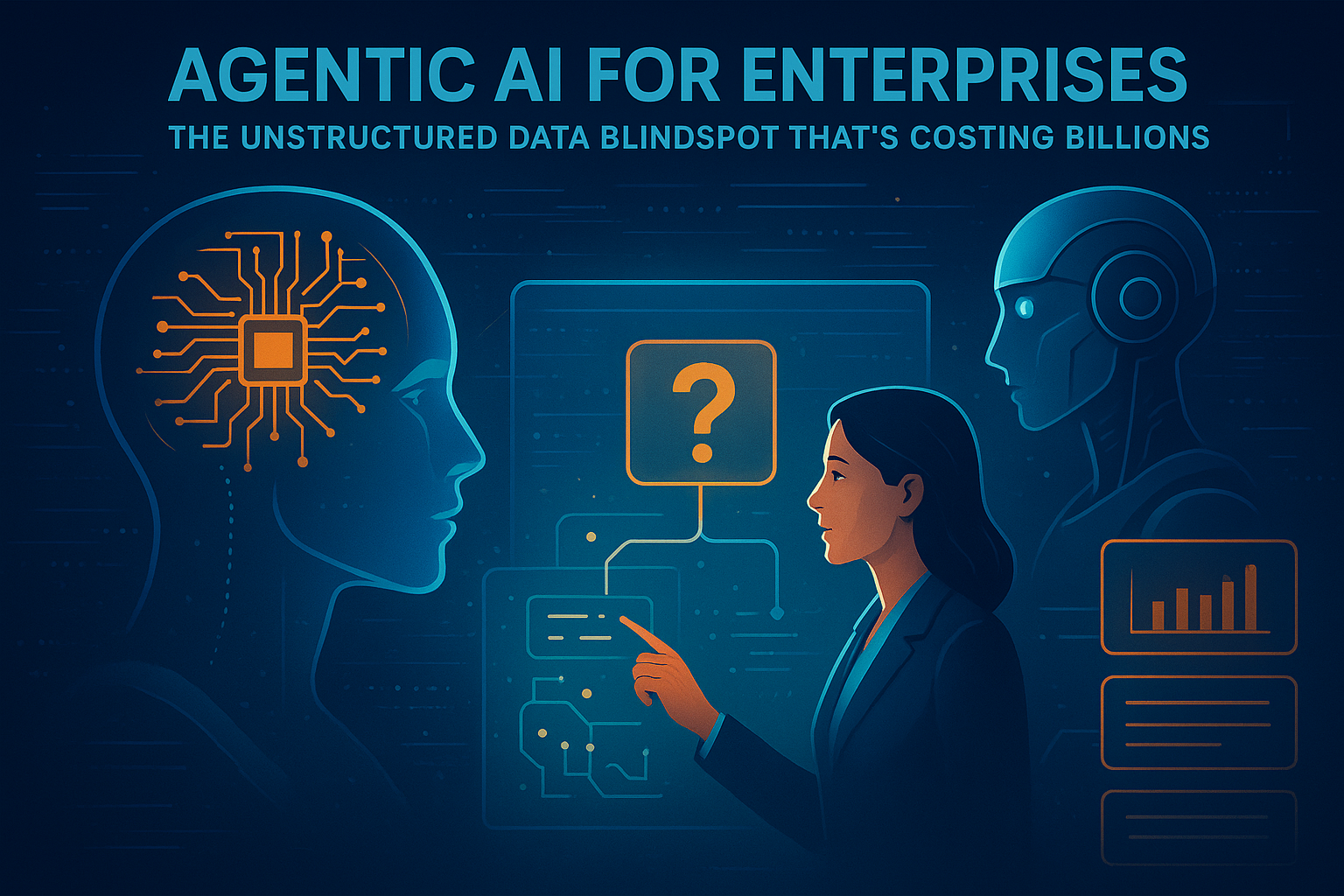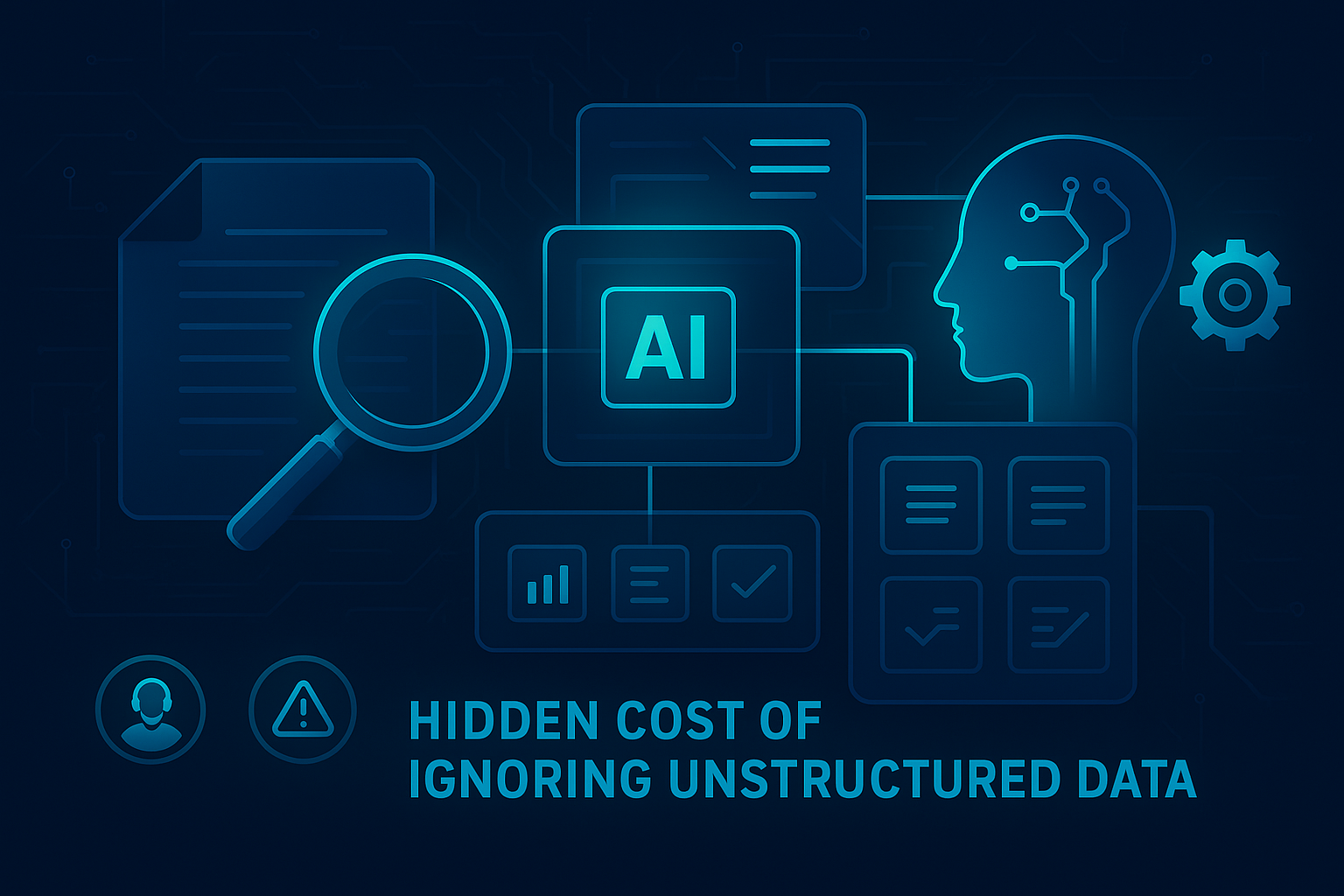Join our WhatsApp Community
AI-powered WhatsApp community for insights, support, and real-time collaboration.
90% of enterprise data is unstructured and wasted. Agentic AI + RAG unlock it into insights, driving faster decisions, compliance, and growth.

| Why is AI important in the banking sector? | The shift from traditional in-person banking to online and mobile platforms has increased customer demand for instant, personalized service. |
| AI Virtual Assistants in Focus: | Banks are investing in AI-driven virtual assistants to create hyper-personalised, real-time solutions that improve customer experiences. |
| What is the top challenge of using AI in banking? | Inefficiencies like higher Average Handling Time (AHT), lack of real-time data, and limited personalization hinder existing customer service strategies. |
| Limits of Traditional Automation: | Automated systems need more nuanced queries, making them less effective for high-value customers with complex needs. |
| What are the benefits of AI chatbots in Banking? | AI virtual assistants enhance efficiency, reduce operational costs, and empower CSRs by handling repetitive tasks and offering personalized interactions. |
| Future Outlook of AI-enabled Virtual Assistants: | AI will transform the role of CSRs into more strategic, relationship-focused positions while continuing to elevate the customer experience in banking. |
Here’s the paradox: enterprises spend billions building data lakes, warehouses, and dashboards… yet when leaders ask “Why are customer complaints spiking?” or “Which supplier delays hit us hardest this quarter?” the answers rarely come fast — if at all.
Why? Because most of the answers live in unstructured enterprise data:
Analysts estimate over 80–90% of enterprise data is unstructured — but only 10–20% gets analyzed. The rest? Buried, scattered, or sitting idle in archives and file servers.
It’s the corporate equivalent of owning an oil field but still buying petrol at the pump.
For enterprises starting to modernize their data-driven decision-making, check out our guide on AI Agents Redefining BI, Driving Business Actions and ROI.
It’s not that enterprises don’t care. They just lack the tools.
So unstructured data gets relegated to storage — compliance-driven archiving, not value-driven analysis.
The opportunity cost is massive: lost customer signals, missed fraud patterns, inefficient operations, and decisions made with only a fraction of the full picture.

Think about the hidden losses:
Yet most enterprises still run on just the tip of the iceberg.
This is where Agentic AI workflows change the game. Unlike static dashboards or manual searches, Agentic AI agents:
Think of it as moving from “data access” to “data action.”
Instead of searching for a 200-page manual, a frontline engineer asks: “Why did Separator-2 fail at the refinery last week?”
Instead of digging through support chats, a product manager asks: “What’s the top complaint from APAC customers in the last 90 days?”
Instead of waiting for a compliance audit, a risk officer asks: “Are any of our third-party contracts missing new GDPR clauses?”
The agent fetches, contextualizes, and delivers an actionable response — in seconds, not weeks.
Many enterprises experiment with RAG to query documents — but a single RAG query ≠ unlocking dark data.
RAG still needs a human operator to ask the right questions. And without orchestration, it’s just a smarter search box.
Agentic AI elevates RAG by chaining it into workflows:
This autonomy is what turns passive “search” into proactive data activation. For enterprises wondering how to start building such workflows, our Enterprise Agentic AI Playbook offers a roadmap.
When enterprises deploy Agentic AI for unstructured data, the benefits ripple across every department:
This isn’t just optimization — it’s transformation.

Here’s the bottom line: structured dashboards are no longer enough. Enterprises that ignore unstructured enterprise data are effectively flying blind.
Competitors who arm themselves with Agentic AI + RAG won’t just have better reports — they’ll have:
The question is no longer “Should we use AI for unstructured data?” but “How much longer can we afford not to?”
Unstructured data isn’t a side problem. It’s 90% of enterprise reality. And ignoring it is no longer an option.
With Agentic AI workflows, enterprises can finally see, understand, and act on the full spectrum of their information — not just the polished slices in dashboards.
For a deeper dive on why every organization needs such capabilities, don’t miss our blog on Why Your Enterprise Needs an Agent.
The winners of this decade will be those who stop treating unstructured data as digital exhaust — and start treating it as the fuel for enterprise growth and competitive advantage.
Fluid AI is an AI company based in Mumbai. We help organizations kickstart their AI journey. If you’re seeking a solution for your organization to enhance customer support, boost employee productivity and make the most of your organization’s data, look no further.
Take the first step on this exciting journey by booking a Free Discovery Call with us today and let us help you make your organization future-ready and unlock the full potential of AI for your organization.

AI-powered WhatsApp community for insights, support, and real-time collaboration.
.webp)
.webp)

Join leading businesses using the
Agentic AI Platform to drive efficiency, innovation, and growth.
AI-powered WhatsApp community for insights, support, and real-time collaboration.